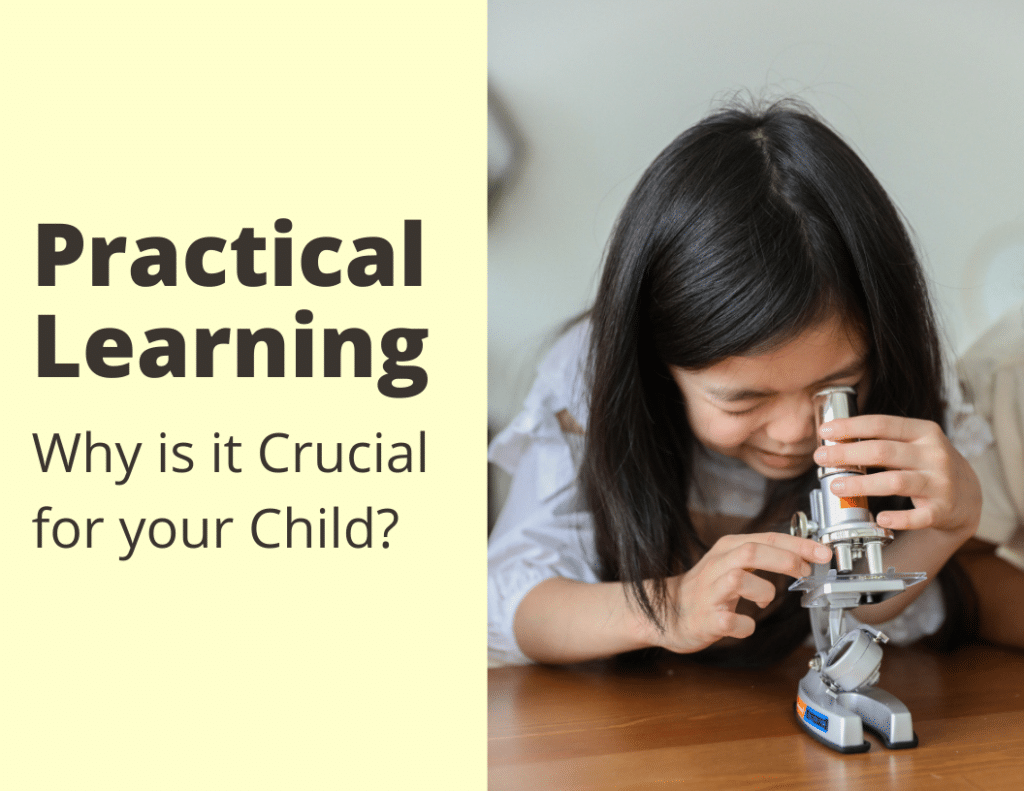“Knowledge is of no value unless you put it into practice.” – Anton Chekhov.
Does hands-on learning have a significant influence on students? Yes! Practical learning helps students learn more effectively. It has been scientifically shown to help students remember information for an extended amount of time.
A student’s ability to grasp an idea is enhanced more by doing than by hearing about it. Children must begin learning via hands-on activities as early as possible. Students become successful experts as a result of this skill-based practical education. You can get high marks in theory, but what use is it if you can’t apply it to real-world situations?
Here are some advantages of practical learning and why it is crucial for school students:
Discourages the Culture of Memorizing
Few pupils are fortunate enough to read and retain information to learn. Students who struggle with memory retention, or “memorizing,” should also be addressed. The strain and stress of memorizing whole chapters or a course curriculum may be enormous. Students might benefit from actual learning rather than simply memorizing facts in many circumstances. They will be able to study more effectively and achieve better grades due to this.
Creates a Love for Learning
What do you think is more attractive? A lecture in a classroom or an excursion to a field/factory? It’s critical that kids like and enjoy learning. Students are under a lot of pressure in the classroom, and there is more than the necessary emphasis on tests and exams. Grades and goals don’t matter when it comes to education. There has to be a setting where students may apply what they’ve learned in class. For example, students’ attention is piqued in a chemistry lesson when escorted to a lab where they may observe and demonstrate chemical reactions.
Includes training
You can’t learn anything by reading the same material over and over. However, putting that knowledge into action through experiments or other activities needs a lot of experience. If you continue studying a language guidebook without speaking the language, you will make no progress. When you start speaking in that language, you’ll notice a difference. As time goes on, you’ll see an improvement. Therefore, unless the theoretical knowledge is turned into practical tasks which are practiced and proven, sitting on the side with a book or simply learning is not beneficial in the long run.
Generates a More Meaningful Impact
It is possible to improve your comprehension of a subject through interactive education, such as practical learning. Learning by doing rather than reading about it in a textbook or a research paper is imperative to develop the right knowledge that broadens your horizon. A student’s ability to learn and comprehend is greatly enhanced when they engage in this type of learning, creating a larger impact on their mind and behavior.
Improves Knowledge Retention
Our brains retain information when we study to memorize it in preparation for a test; this does not serve its intended goal because our brains forget it so quickly. You strive too hard to memorize a theory or an explanation word-for-word, yet you constantly miss crucial details or seem to forget the information after the exams. Knowledge gained via practical applications, such as experiments, real-world projects, or educational excursions, are those we carry with us for a long time.
Practical learning allows pupils to put what they’ve learned in the classroom into practice. It is critical to the acquisition of new information and abilities. When students study in a hands-on environment, they have a better time remembering what they’ve learned and are more likely to stick with what they’ve learned longer. This helps them in their career, it creates a safe and secure spot for them in their field of choice because they are used to the practicality of their knowledge as opposed to just theory.
When students engage with real-world tasks, their retention and confidence grow. It’s even more impactful when combined with science lab experiences, student-led simulations like NHMUN, and school selection guidance. NHIS stands among the best schools in north bangalore and international schools in bangalore.



